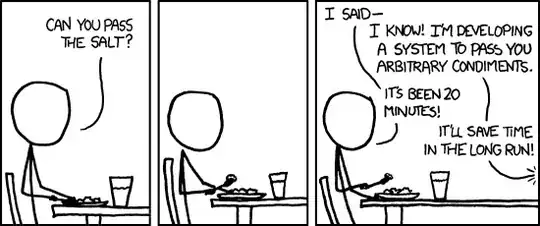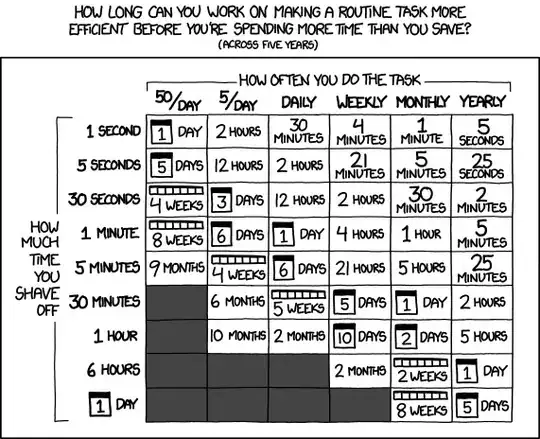I'm a self-taught, novice-ish coder, so I apologize if I don't nail the programmer lingo.
I'm working on a project in which I am providing data, which will be continually updated, to developers who will essentially create a tool to generate reports from queries on the data.
It seems that everyone involved thinks that they need to hard-code data values (not the schema, but the domains/values themselves) into the report-generation program.
For example, suppose we were reporting on personnel; the report would be split into categories, with a heading for each department, and then under each department heading will be subheadings of job titles, and then under each subheading will be a list of employees. The developers want to hard-code the departments and job titles. On the other hand, I would think that they could/would query out those things at runtime, sort records by them, and generate report headers dynamically based on what values are there.
Since the list of potential values will change over time (e.g., departments will be created/renamed, new job titles will be added), the code will need to be continually updated. It seems to me that we could skip the code maintenance steps and dynamically organize the reports.
Since I am not a developer, I'm wondering what I'm missing. What advantages might there be to hard-coding values into a tool like this? Is this typically how programs are designed?

